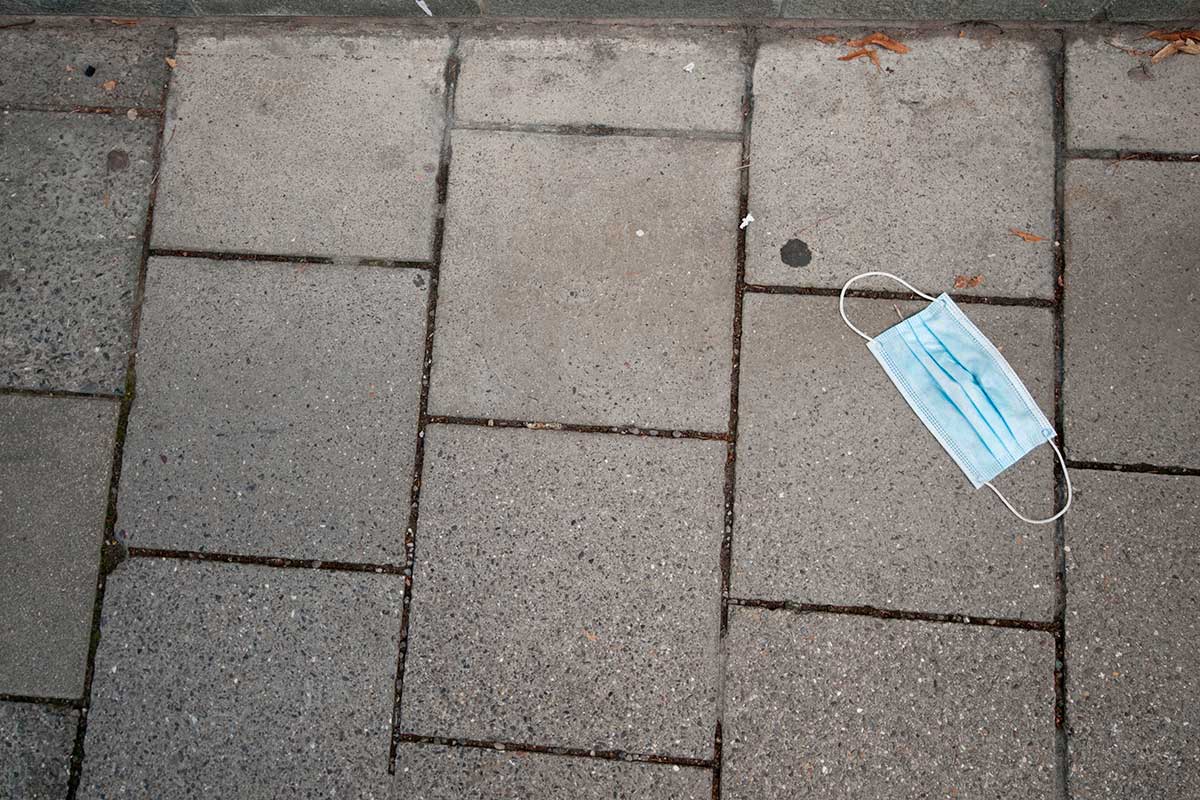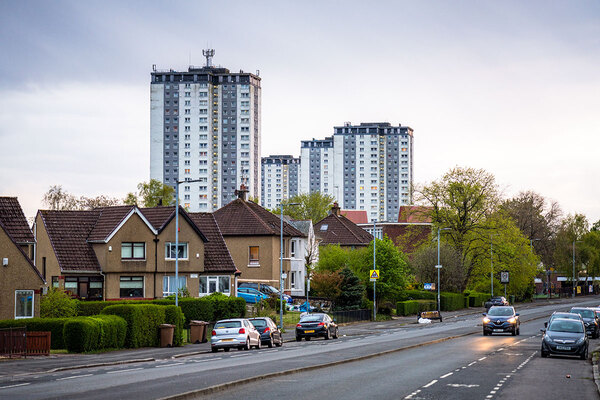You are viewing 1 of your 1 free articles
Scottish social landlords impacted ‘significantly’ by pandemic, report finds
The COVID-19 pandemic has had a “significant” impact on social landlords in Scotland due to increased rent arrears, backlogs in lettings and higher numbers of people in temporary accommodation, new research has found.
A report by the Social Housing Resilience Group (SHRG), which was established at the start of the pandemic, has used data from the Scottish Housing Regulator (SHR), Scotland’s Housing Network and Housemark Scotland to establish what impact the pandemic had on Scottish social landlords in 2020/21.
It found that gross rent arrears rose from 6.3% in April 2020 to 8.2% in March 2021 for local authorities, and from 3.5% to 4.4% for housing associations.
Overall rent arrears in Scotland are currently 4.1%, the third-highest rate in the UK behind London (5%) and the North East (4.4%).
According to the report, the sector-wide arrears figures masked variation between individual landlords. The effect of rising rent arrears were “most keenly felt where the landlord had comparatively low proportions of directly paid housing benefit claimants and comparatively more tenants claiming Universal Credit”.
On lettings, the SHRG report found the average monthly tenancy turnover had fallen from a sector average of 8.4% in 2019/20 to 7.7% for housing associations and 6.7% for councils in 2020/21.
At the start of the pandemic, the rate of tenancies ending was roughly half the rate of the year before and only rose above the 2019/20 average from August to November, before falling again.
The SHRG said it is uncertain whether this rate will catch up as restrictions ease, which has implications “especially for councils rehousing homeless households, as well as for void rent loss and managing the voids process”.
The report said “one of the more obvious impacts of the pandemic” was the number of homeless people in temporary accommodation.
Accurate data for the number of households in temporary accommodation towards the end of 2021 does not exist, due to a lack of data from Edinburgh Council. However, the SHRG said “recovery back to the level of earlier years will be a long process and will be very dependent on tenancy turnover increasing from the low level experienced during the first year of the pandemic”.
Overall the report concluded that the social housing sector in Scotland continues “to work in a fast-changing environment with the possibility of measures to tackle the pandemic likely to continue in some form for some time to come”.
Sally Thomas, chief executive of the Scottish Federation of Housing Associations and chair of SHRG, said: “In March 2020, landlords moved quickly to protect their tenants and their communities, and we have seen a tremendous level of resilience in how they have navigated the pandemic.
“We are pleased to have worked with Scotland’s Housing Network and Housemark Scotland to produce this report, which will help social landlords and others make evidence-based decisions as they continue striving to provide good-quality, affordable housing nationwide.”
Kirsty Wells, head of Housemark Scotland, said: “One of the key challenges for social landlords as we emerge from the pandemic will be striking the right balance between making decisions now that enable them to move forward, whilst holding off on some that might have unintended consequences and be difficult to reverse.
“Our analysis has shown that using data to drive evidence-based decisions and take appropriate action is driving sector resilience. Housemark Scotland is pleased to make this analysis from our UK membership available to the wider sector to help landlords make decisions that make a difference.”
Andrea Finkel-Gates, chief executive of Scotland’s Housing Network, said: “There can be no doubt that the COVID-19 pandemic has delivered the biggest global, universal shock in recent memory.
“We have seen that having the right data at the right time has been key to effective decision-making throughout the crisis.
“We’re pleased to come together with our sector partners to help landlords understand the impact of the past 18 months and look towards the future.”
Sign up for our Scotland newsletter
Already have an account? Click here to manage your newsletters













